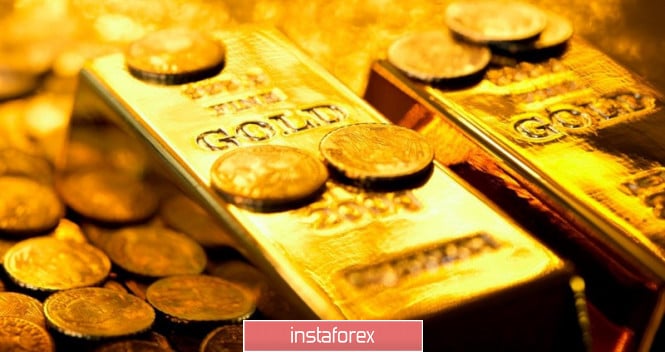
Gold froze at a crossroads. Apparently, speculators who push prices higher, and consumers who want to buy cheaper metals, decided to take a break.
Since the beginning of this year, gold has risen by almost 19% in price, breaking the psychologically important mark of $1,500 per ounce. The last time this level was observed was in April 2013.
The main reason for the growth of quotes was the fear of investors about the global recession, which forces them to shift capital to safe haven assets. It is assumed that if the concerns of market participants begin to be confirmed, the rally of precious metals will continue.
"Rising prices to a six-year high is primarily due to bonds, and it is extremely important for investors to monitor changes in their yield in order to understand what will be the dynamics," said Oax Hansen of Saxo Bank.
The decrease in bond yields in the world has already led to the fact that sovereign bonds with a total volume of almost $16 trillion give a negative percentage.
The jump in the cost of precious metals was also caused by expectations that the Fed, the ECB and other central banks would stimulate economic growth in various ways. The easing of monetary policy tends to lower interest rates and increase the investment attractiveness of gold.
A sharp rise in prices carries the risks of an equally sharp decline, analysts warn.
"The aggregate gold volume in ETFs is steadily growing and has reached 77.4 million ounces, which is the highest for six years. Previous similar bursts of speculative demand caused a serious correction of quotations," O. Hansen said.
In addition, fears of a global recession may also be exaggerated: now markets are most likely driven by emotions. Recent macroeconomic data for the United States were positive and the reduction of interest rates by the world central bank is aimed at maintaining economic growth.
Reducing tensions in Washington and Beijing's trade relations could also serve as a reason for a short, albeit sharp, price correction.
Another negative point for gold may be the expected decline in demand for jewelry in India due to an increase in import duties in the country from 10% to 12.5%, as well as a change in ETF positions, which will respond to the sale of precious metals in response to a restoration of risk appetite .
In case the Fed comes with a surprise - not to continue to lower the interest rate - a correction in gold prices is also possible.
"We expect the Fed to disappoint the market without lowering interest rates in the coming months, and profit taking will ultimately trigger the end of the gold rally. In the event of a pullback, the $1,350 mark per ounce is likely to become a new level of support," representatives of the Fitch rating agency said.
However, there are plenty of factors in favor of the growth of quotes.
According to Deutsche Bank analysts, the main drivers of gold price growth will be real interest rates, stock risk premium, US dollar, as well as purchases of precious metals by central banks.
According to the forecast of Deutsche Bank, the price of gold will be $1,575 per ounce in the next year and a half, and under certain conditions it can reach $1,700.
"Gold is an extremely profitable investment amid the easing of monetary policy by the leading central banks of the world," said Mark Mebius, founder of the Mobius Capital Partners investment fund.
"The long-term prospect of gold – up, up and only up, because the money supply in the world will grow, grow and grow again. Therefore, I believe that gold should be bought at any price," he said.
The material has been provided by InstaForex Company - www.instaforex.com